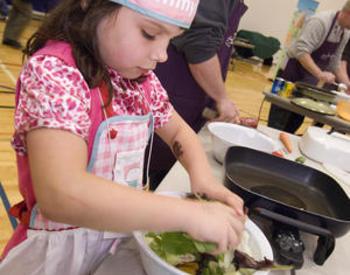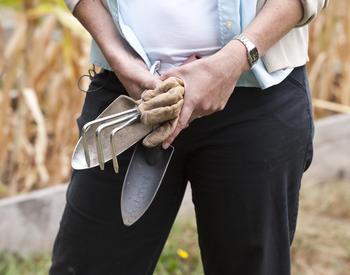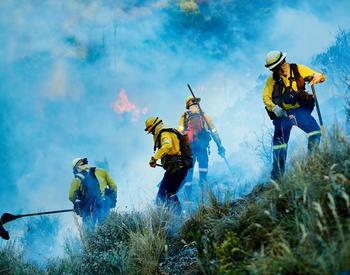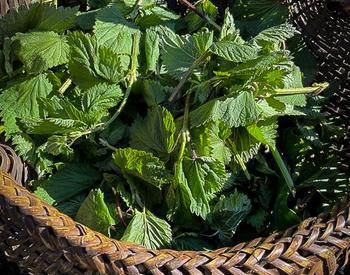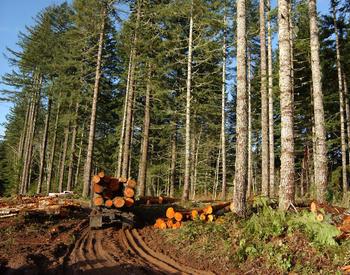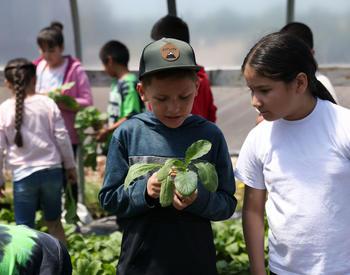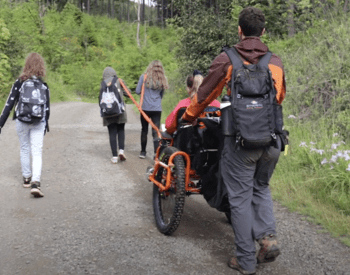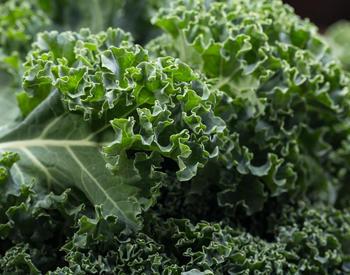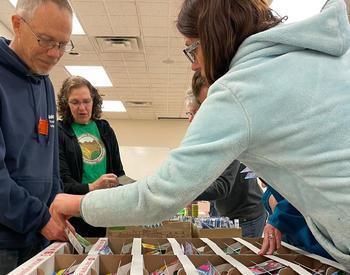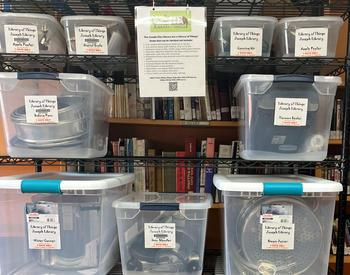GLIDE, Ore. – Oak logs, each about half the length of a child’s arm, sat side by side on two tables on a paved walkway next to the garden at Glide Elementary School.
Alicia Christiansen took a pinch of sawdust and pushed it into a hole that had been drilled into the log. Then she held up an implement with a thin metal handle with a wool ball at the end.
“The spores for the mushrooms are already in the sawdust. Once I get to the point where that sawdust is almost to the top of the log, I’m going to take the dauber …”
Christiansen, an Oregon State University Extension Service forester in Douglas County, leaned into the middle of the table to dip the dauber into a pan of hot wax. She swirled it around and brought it back to the log.
“Once you do this, then you’re going to seal over the top of the hole. The wax cooled so we’re going to let it seal. Do you see how that looks nice and sealed? See that it’s white? That’s how you know it’s a good seal.”
With that, Christiansen had demonstrated how to inoculate a log with shiitake mushroom spores. For the next hour, the students repeated the process by moistening the holes with water, filling them with sawdust and covering the holes with wax.
Christiansen taught two sixth grade classes back-to-back, for a total of about 45 students. The kids stacked their finished logs in the garden. They know which one is theirs because their first names are written on the side in black ink.
If all goes well, the mushrooms will grow out of the logs and be ready for harvest by late summer.
“They should produce mushrooms for several years,” said Mandy Hatfield, Extension nutrition educator for Douglas County who worked with Glide Elementary to coincide with mushrooms being the featured Food Hero Monthly harvest item.
Food Hero, a statewide initiative of the Oregon Supplemental Nutrition Assistance Program Education (SNAP-Ed) program, has been used in communities and schools across the state, building children’s cooking skills through sharing the recipes and sampling new foods.
Overheard in the office
Prior to the hands-on activities, Christiansen gave a presentation to the students about mushrooms, such as their life cycle, how to inoculate logs, a mushroom’s preferred species, and how woodland owners can inoculate their logs.
Glide is a town of 1,800 in the Cascade foothills about 17 miles northeast of Roseburg. The countryside is dominated by stands of oaks and evergreen trees. Many of the Glide students either live on wooded properties or near them, according to Hatfield.
The idea for the class began when Hatfield heard Christiansen talking in the Extension office about planning to teach a shiitake mushroom inoculation class to Master Gardeners.
“I asked her, ‘Do you think you could do this with kids? Alicia said, ‘I probably could.’ So, I said, ‘I have a school that would love this.’”
It was the first time Hatfield and Christiansen had worked together on a project. They both said they’d like to do it again.
“It opened the door to find where we could cross-pollinate our programs more,” Christiansen said. “You don’t think of nutrition and forestry going hand in hand. But it’s been really fun. Youth is not an audience that I get to interact with very frequently, so it’s been fun to get out of my norm. The kids are awesome.”
Joe Kercher, one of the Glide sixth graders, said he’s interested in growing mushrooms on logs because his family likes to hike and hunt. Every summer his family has a plant sale. He plans to try to grow his own shiitake mushrooms at home.
“This was really fun,” Joe said. “I can’t wait to see the finished product.”
